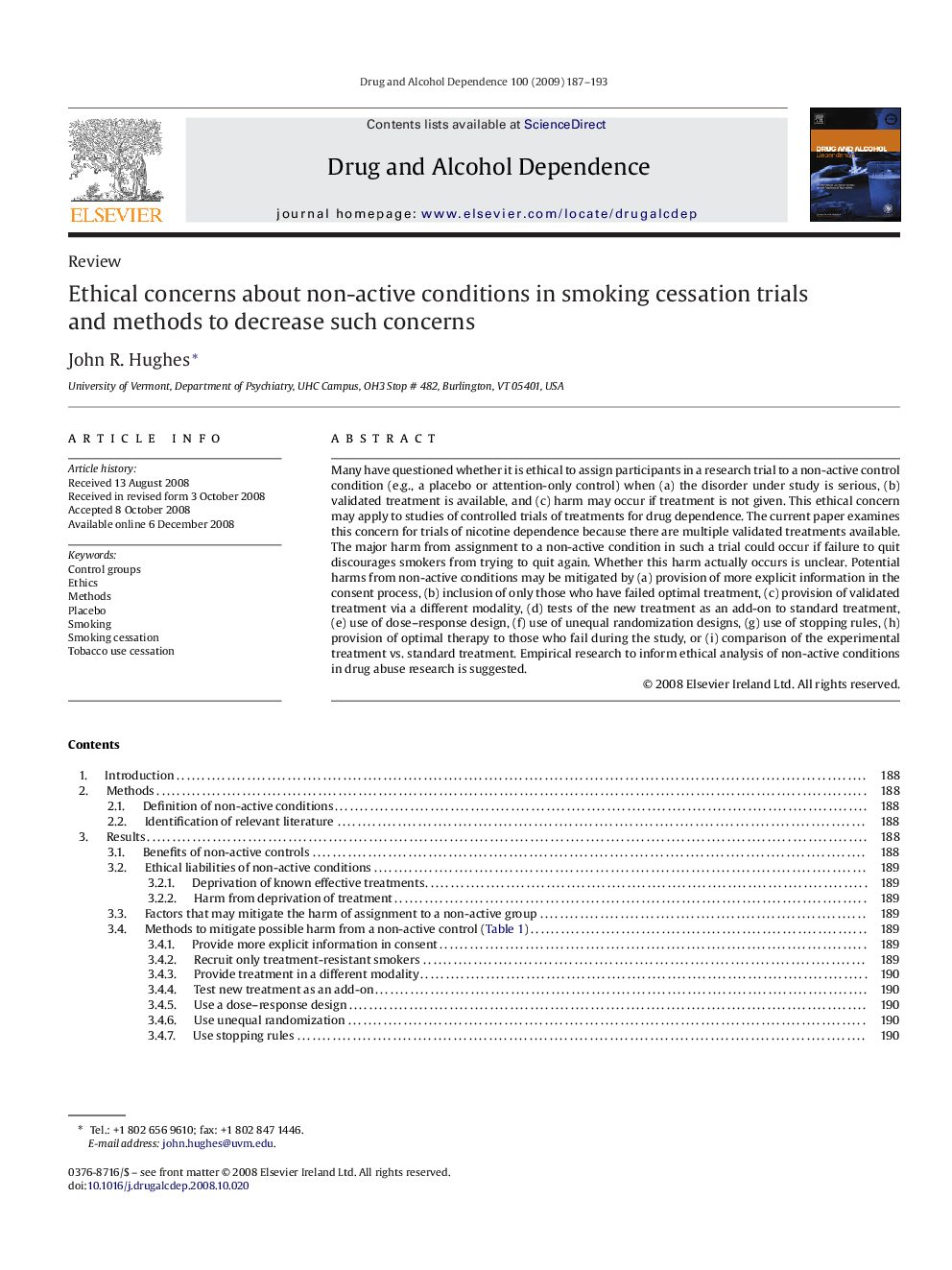| کد مقاله | کد نشریه | سال انتشار | مقاله انگلیسی | نسخه تمام متن |
|---|---|---|---|---|
| 1070881 | 1486191 | 2009 | 7 صفحه PDF | دانلود رایگان |

Many have questioned whether it is ethical to assign participants in a research trial to a non-active control condition (e.g., a placebo or attention-only control) when (a) the disorder under study is serious, (b) validated treatment is available, and (c) harm may occur if treatment is not given. This ethical concern may apply to studies of controlled trials of treatments for drug dependence. The current paper examines this concern for trials of nicotine dependence because there are multiple validated treatments available. The major harm from assignment to a non-active condition in such a trial could occur if failure to quit discourages smokers from trying to quit again. Whether this harm actually occurs is unclear. Potential harms from non-active conditions may be mitigated by (a) provision of more explicit information in the consent process, (b) inclusion of only those who have failed optimal treatment, (c) provision of validated treatment via a different modality, (d) tests of the new treatment as an add-on to standard treatment, (e) use of dose–response design, (f) use of unequal randomization designs, (g) use of stopping rules, (h) provision of optimal therapy to those who fail during the study, or (i) comparison of the experimental treatment vs. standard treatment. Empirical research to inform ethical analysis of non-active conditions in drug abuse research is suggested.
Journal: Drug and Alcohol Dependence - Volume 100, Issue 3, 1 March 2009, Pages 187–193